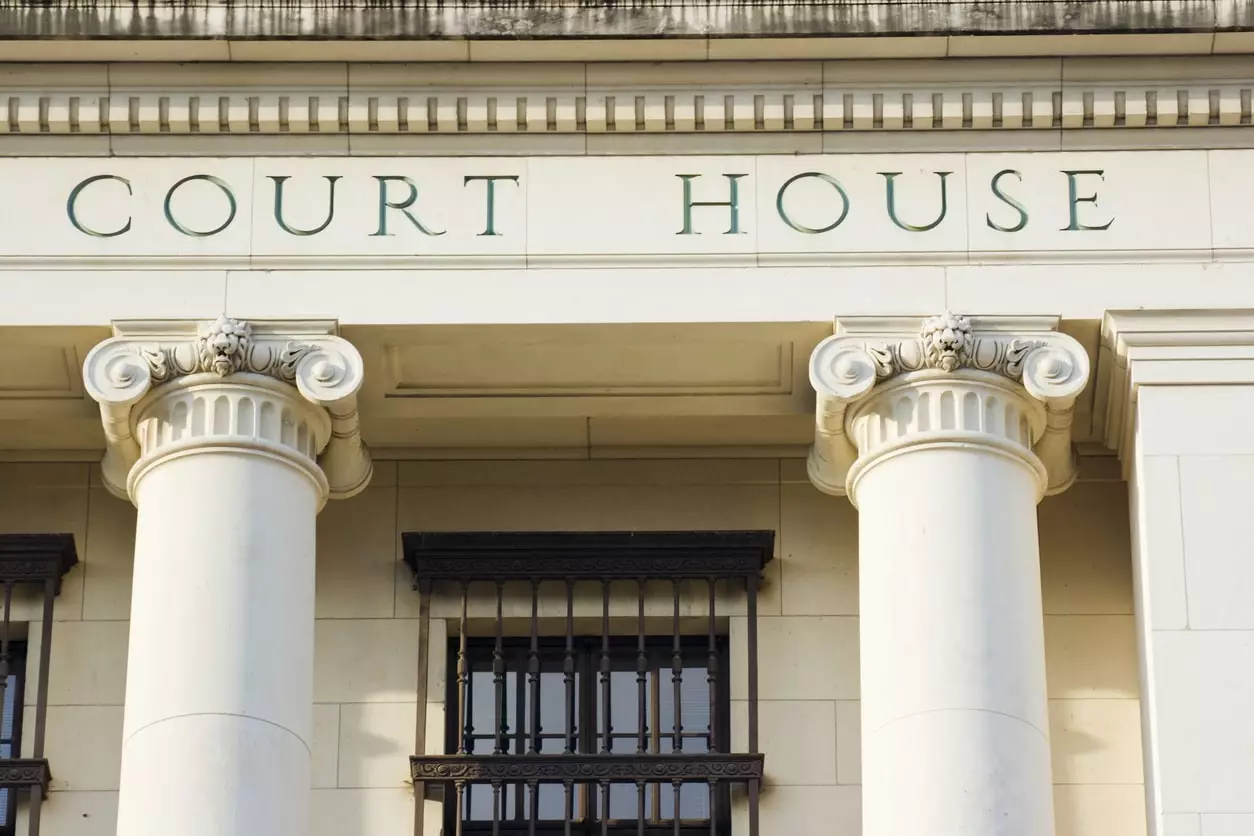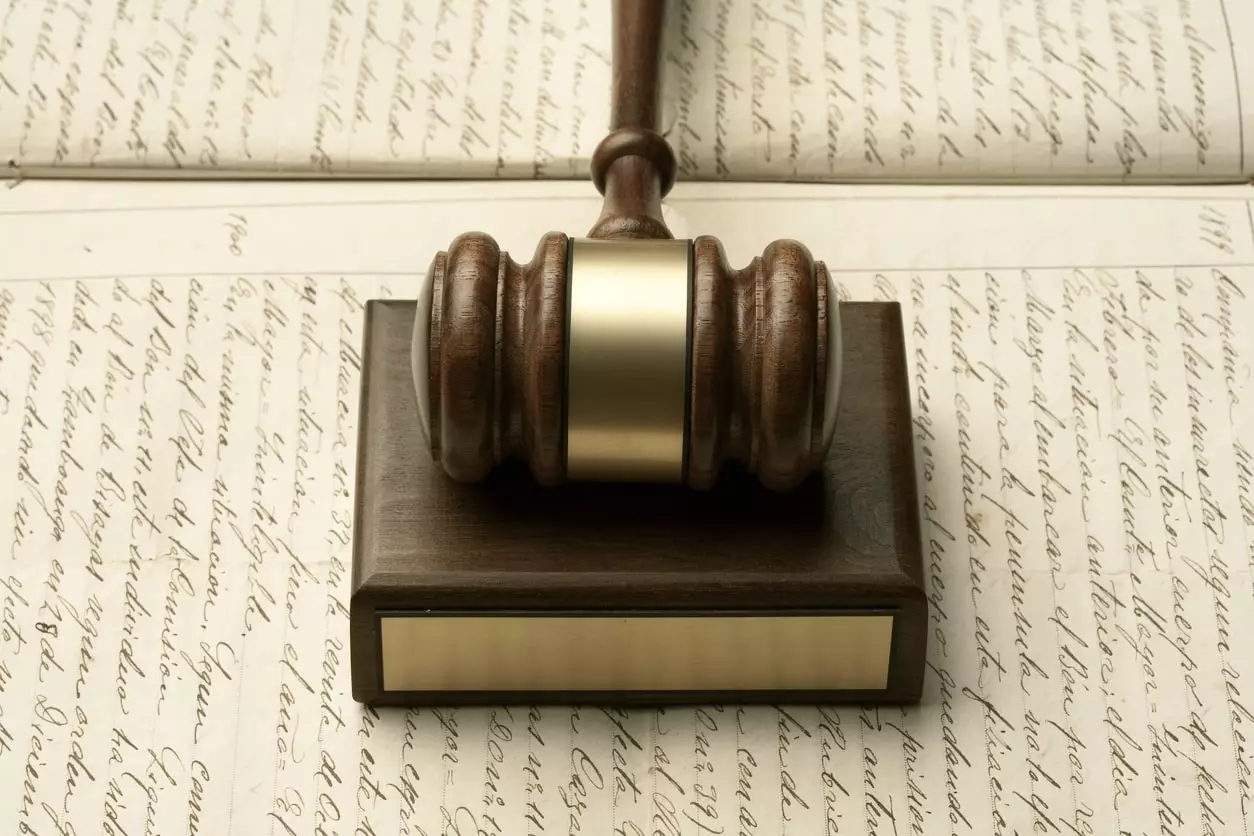 How to Look Up a Criminal Court Docket by Name or Case Number
How to Look Up a Criminal Court Docket by Name or Case Number
Table of Contents
 Kansas Court Records & Case Lookup
Kansas Court Records & Case Lookup
Kansas operates a unified judicial system with different levels of court handling a significant amount of legal proceedings annually. In 2023, approximately 333,960 cases were handled by District Courts across the state, and Municipal Courts processed over 166,000 new cases.
Per the Open Records Act, records of each case processed within Kansas are publicly accessible to the public. This means that citizens can review these records to gain insight into court proceedings and outcomes. However, some records are exempt from public disclosure because they are deemed confidential by law or court rules.
Except for confidential or sealed records, court records are available to anyone in Kansas and may be used for academic research, news publications, and as evidence in future legal proceedings.
Anyone who wants to inspect and copy Kansas court records has several options. Kansas does not have a central database for all court records, but some individual courts offer online access to their records. Alternatively, citizens can visit state court locations in person to view available court records.
 State of Kansas Court System
State of Kansas Court System
The Kansas court system comprises the Supreme Court, the Court of Appeal, District Courts, and Municipal Courts.
The Supreme Court is the state's apex court. It reviews cases decided first from the Court of Appeals, and hears direct appeals from the District Courts in significant criminal cases. In addition, the Supreme Court addresses cases where a law has been designated unconstitutional.
The court consists of seven justices chosen through a merit nomination process. The decision of this court is legally binding on lower courts in the state.
The Kansas Court of Appeals serves as an intermediate appellate system that handles appeals from different district courts for criminal or civil cases, other than items that are to be taken to the Supreme Court directly.
Additionally the Court of Appeals hears appeals of decisions from administrative agencies, such as the Kansas Corporation Commission, the Kansas Board of Tax Appeals, and the Kansas Workers Compensation Appeals Board.
In Kansas, most cases begin and end at the trial courts in Kansas. However, state law allows citizens to appeal decisions from these courts to higher courts, such as the Kansas Court of Appeals and the Supreme Court.
Generally, direct appeals from trial courts are directed to the Kansas Court of Appeals. A decision can only be appealed directly to the Supreme Court in rare cases.
Kansas Trial Courts
Kansas trial court system comprises a general jurisdiction court at the county level and a limited jurisdiction court at the local level.
District Courts in Kansas
Kansas District Courts are the state's trial courts of general jurisdiction. These courts have original jurisdiction covering all civil and criminal cases, including domestic relations and divorce, probate and administration of estates, juvenile matters, as well as small claims.
Kansas District Courts are where civil and criminal jury trials are held. Each county has a District Court, and each court has a clerk who serves as the custodian of court records.
District Courts decisions are appealed to the Court of Appeal, and in some cases, they may reach the Supreme Court.
Municipal Courts in Kansas
Kansas Municipal Courts are local courts that hear violations against city ordinances, traffic infractions, and other small offenses.
In 2023, Kansas Municipal Courts received approximately 207,000 new filings and processed over 166,000. Kansas Municipal Courts decisions are appealed to the District Court.
What are the Specialty Courts in Kansas?
The Kansas judicial system operates specialty courts to provide specialized services to certain persons. These courts, otherwise known as Problem-Solving Courts, offer treatment programs to prevent the recurrence of behaviors that lead citizens to court.
Kansas District Courts operate several Specialty Courts, which generally fall into these categories:
Kansas State Court Records vs. Federal Court Records
Court records typically include documents containing information about a legal proceeding within the state. The main difference between Kansas state and federal court records is their source. Various courts within the state's judicial system create Kansas state court records. In contrast, federal court records are created by the United States District Court for the District of Kansas, which is the only federal court in the state.
Kansas state court records include a variety of documents related to civil and criminal cases, probate matters, traffic infractions, and juvenile cases. In contrast, federal court records contain information about bankruptcy cases, disputes between two or more states, and suits involving federal laws and treaties constitute federal court records.
Kansas state court records are maintained by court clerks of each courthouse. They can be accessed by visiting the office of the clerk. On the other hand, federal court records in the state are generally accessible to the public through the Public Access to Court Electronic Records (PACER), a federal court records database.
 What Are Public and Non-Public Court Records in Kansas
What Are Public and Non-Public Court Records in Kansas
The Kansas Open Records Act allows citizens to inspect and copy records maintained by state courts, provided they are not exempt from public disclosure. Court records may be exempt from public disclosure for privacy or confidentiality reasons:
| Public Court Records | Non-Public Court Records/Redacted Information |
|---|---|
| Criminal case files (including arrest records, trial dates, and conviction records) | Juvenile records and sealed criminal records |
| Civil case records | Social Security numbers, tax identification numbers, passport numbers, or other government-issued numbers. Trade secrets and information involving minors |
| Family law case records (including divorce records) | Information involving adoption records, domestic violence victims, and minors |
| Probate records | Mental health-related information |
| Traffic case records | Driver's license numbers |
 How To Seal or Expunge Kansas Court Records
How To Seal or Expunge Kansas Court Records
Chapter 2, Article 66 of the Kansas Statutes outlines the standard procedure for expungement of court records within the state. In Kansas, sealing or expunging a court record does not entirely remove the event from the record. Although expungement or sealing a court record may restrict public access, these records remain available to state agencies.
The main difference between sealing and expunging a record in Kansas is that citizens can seal a record before and after the case is tried, but expungement can only be done after the case is handled.
In Kansas, the following offenses do not qualify for expungement:
- Capital murder
- Aggravated kidnapping
- Trafficking of persons
- Sexual assault
- Criminal sodomy
How To Seal Court Records in Kansas
In Kansas, citizens may seal court records at case initiation and after hearing the case. To seal court records at the beginning of a case, the individual must file an Ex parte motion to seal the case along with an order for temporary sealing.
Upon receiving the motion, a judge reviews the matter and determines if the request for a temporary seal should be granted. If the request to seal the record is granted, the case record will remain under seal until a judge reverses a prior order granting the motion.
To seal court records after the case has been handled, an individual must submit a motion to seal or redact court to the sentencing court.
A judge reviews the motion and determines whether the request should be granted. If the request to seal the record is granted, the case record will remain under seal.
How To Expunge Court Records in Kansas
To expunge a criminal history record in Kansas, an individual must first assess the eligibility of the record for expungement. Those interested may view records eligible for expungement by downloading the Kansas State Expungement factsheet.
After confirming their eligibility, the individual must file a petition for expungement through the court that handled the case. Once the petition is received, the court determines if the record should be expunged.
If the expungement is granted, the court will mail a certified copy of the court order to the Kansas State Bureau of Investigation (KBI). The KBI will process the expungement and update the individual's criminal history within two to four weeks of receiving the court order.
Note that expungements are processed in the order they are received.
 How Do You Access State of Kansas Court Records?
How Do You Access State of Kansas Court Records?
In Kansas, court records are available online through various state-approved portals. However, in some instances, citizens may have to visit the courthouse where a case was filed to view records.
Each court in Kansas maintains records of cases filed within their jurisdiction, which may be accessed in person. The public is able to request paper records or search electronic documents using the public access terminals available at the courthouse.
Online Access to Kansas Court Records
Anyone who wants to look up Kansas court records online has several options. Currently, Kansas has no single database where citizens can search all the court records.
The public can access District Court records online via the Kansas District Court Public Access Portal. To search cases, interested persons must register on the portal. This portal allows Kansas court records searches by name.
Furthermore, Kansas Supreme Court and Court of Appeal judgments are available online. This portal allows Supreme Court and Court of Appeal decisions search by name, date, and case number.
In-Person Access to State of Kansas Court Records
Kansas State Courts allow individuals to access court records in person, regardless of whether the record is available online. Kansas court records are available at the courthouse or any designated office authorized by the court.
To access court records in person, interested persons must contact the clerk of the specific court where the case was filed to learn about their process.
Most courts in Kansas accept record requests through written applications or a dedicated request form. In addition, these courts have public access terminals that allow requests to view records in electronic format.
Requesters are advised to find relevant information about the case record they want to access before visiting the courthouse.
How To Request Judicial Administrative Records
The Office of the Judicial Administration maintains Kansas judicial administrative records. The public can access these records by emailing a record request to the Office of the Judicial Administration.
Note that judicial administrative records are not obtained for free. Requesters will be required to pay appropriate fees determined by the Kansas State Judicial Administrator.
 How To Access Older and Archived Court Records in Kansas
How To Access Older and Archived Court Records in Kansas
In Kansas, old court records are available at the courthouse where the case was filed. Interested persons may visit the court clerk's office to obtain these records. However, according to Kansas Supreme Court Rule 108, copies of some old Municipal and District Court records are transferred to the Kansas Historical Society before destruction.
Some of these records include adult criminal records that have existed for at least 50 years, small claims records of 10 years, traffic case records of five years, and mechanic liens records of two years.
The public can access these records by submitting a court record request alongside applicable fees by mail to:
Kansas Historical Society
Reference
6425 South West
6th Avenue
Topeka, KS 66615-1099
Note that the request must include the requester's full name, mailing address, telephone number, email address.




